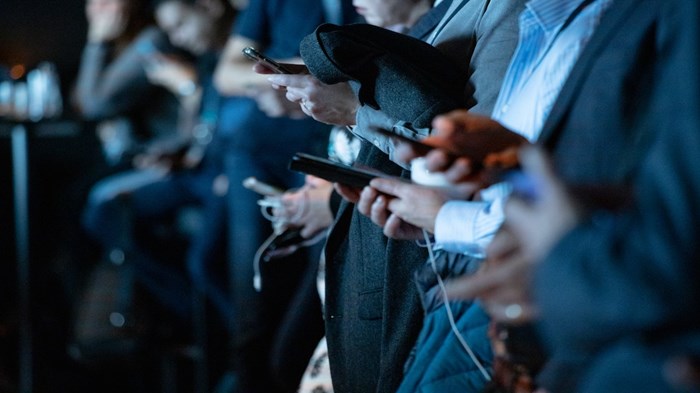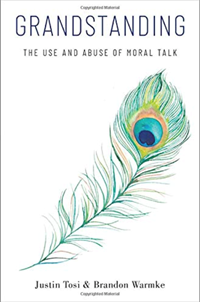Three Major Costs in Grandstanding

In their wonderful new book called Grandstanding, Justin Tosi and Brandon Warmke, probe into the “costs” to society when we have so much grandstanding. One more time, I begin with their opening definition:
What is “grandstanding”?
Grandstanders want to impress others with their moral qual-ities. We call this the Recognition Desire.
Grandstanders try to satisfy that desire by saying something in public moral discourse. We call this public display the Grandstanding Expression.
You can therefore think of grandstanding in terms of a simple formula:
Grandstanding = Recognition Desire + Grandstanding ExpressionGrandstanders try to get others to think of them as morally respectable. Sometimes they want to be thought of as one of the gang. Other times, they want to be thought of as morally exceptional. Either way, they usually want to be seen as morally better than others.
It happens and it is happening all day long on Twitter and Facebook and Instagram. Especially the second and third convey a sense of “look at me.” But Grandstanding ramps it up with a desire for moral recognition for one’s claims.
What are the three costs?
Polarization
Cynicism
The impact of Outrage
Polarization
We are more polarized politically now than at perhaps any time in American history. Grandstanding in polarized corners turns people against one another, stereotypes others, and makes them the enemy. 40% think people of the other party are downright evil! 20% of Dems and 16% of GOP wish the other side would leave the country or “just died.” 18% Dems and 14% GOP would support violence against the other party.
If this continues to escalate we have Civil War 2.
I grew up in an America where I didn’t know for whom most people voted because people kept politics, like religion and sex, behind closed doors. Today people grandstand their virtues by asserting their politics.
Grandstanding contributes to polarization. It takes increasingly extreme views to distance a person from the opposing party.
Grandstanding in a polarized fashions leads increasingly to false beliefs. (How many actually thought President Obama was a Muslim? How many today think Trump is like Hitler?) And more and more base their beliefs on what they are reading in the social media. (God have mercy.)
Grandstanding leads increasingly also to overconfidence in one’s (sometimes false) beliefs.
Hence, I tell my students often to avoid all talk of politics on social media if you are a pastor or leader in a church.

Cynicism
Most people, it seems to me, don’t trust a word from the opposing party. Many don’t trust most news media.
Those who grandstand, furthermore, increase the chance of their words not be taken seriously.
Moral talk in general is not taken seriously because so much of the moral talk seen on social media cannot be taken seriously. Christ have mercy.
We need moral discourse and it is increasingly escaping us.
Outrage
Grandstanders abuse anger.
The cry wolf problem: if everything is a disaster, nothing is a disaster, and calling something a disaster means nothing.
Outrage exhaustion: eventually you, the Outrager, will wear out. One can’t live constantly with a stimulated amygdala. We get habituated, too, to our feelings.
Instead of acting on the outrage, we are exhausted and do nothing. All we’ve done is show our “virtue” by our anger.
Moderates check out: gonna admit this one has my name all over it. I get tired of the outrage by others and my coping mechanism is to delete their name from my feeds. Or ignore them for fear they’ll be outraged by my non-outrage.
The numbers about people in outrage are telling. E.g., 37% are worn out, 59% are frustrated by the politics on social media, about half say they are becoming less civil and respectful.
Enough said.
It makes our society worse to grandstand so much.
Jesus Creed is a part of CT's
Blog Forum. Support the work of CT.
Subscribe and get one year free.
The views of the blogger do not necessarily reflect those of Christianity Today.


















